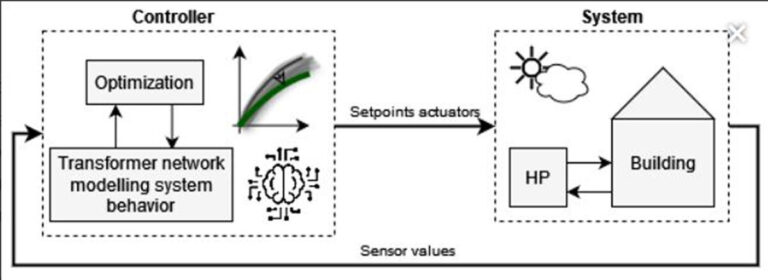Self-learning heat pump control with AI system model
Image: Fraunhofer ISE
The research team ran a series of simulations on the AI-based heat pump controller in three different buildings during one heating season.
“The questions about self-calibration and adaptability to new environmental conditions were both answered positively,” the scientists said. “Depending on the building, the resulting energy savings were on average 13% compared to the standard heating curve.”
Matching the reference room temperature with the desired temperature was crucial for the performance of the controller. “Further energy savings can be expected if the controller is extended with the efficiency properties of the heat pump,” the researchers said.
They also tested the controller in a real building for a week and found that it “significantly” improved the heat pump’s coefficient of performance (COP).
“Compared to the reference period, the AI controller recorded a 25% COP increase, although this needs to be evaluated in more detail during longer field test series and across different building types,” they said. “It is remarkable that the algorithm led to the determination of stable heating curve parameters after just a few days.”
EDF tested the efficiency of the controller for domestic hot water (DHT) production and found that the heat pump reduced energy consumption by up to 8%.
This content is copyrighted and may not be reused. If you would like to collaborate with us and reuse some of our content, please contact: editors@pv-magazine.com.
Popular content



